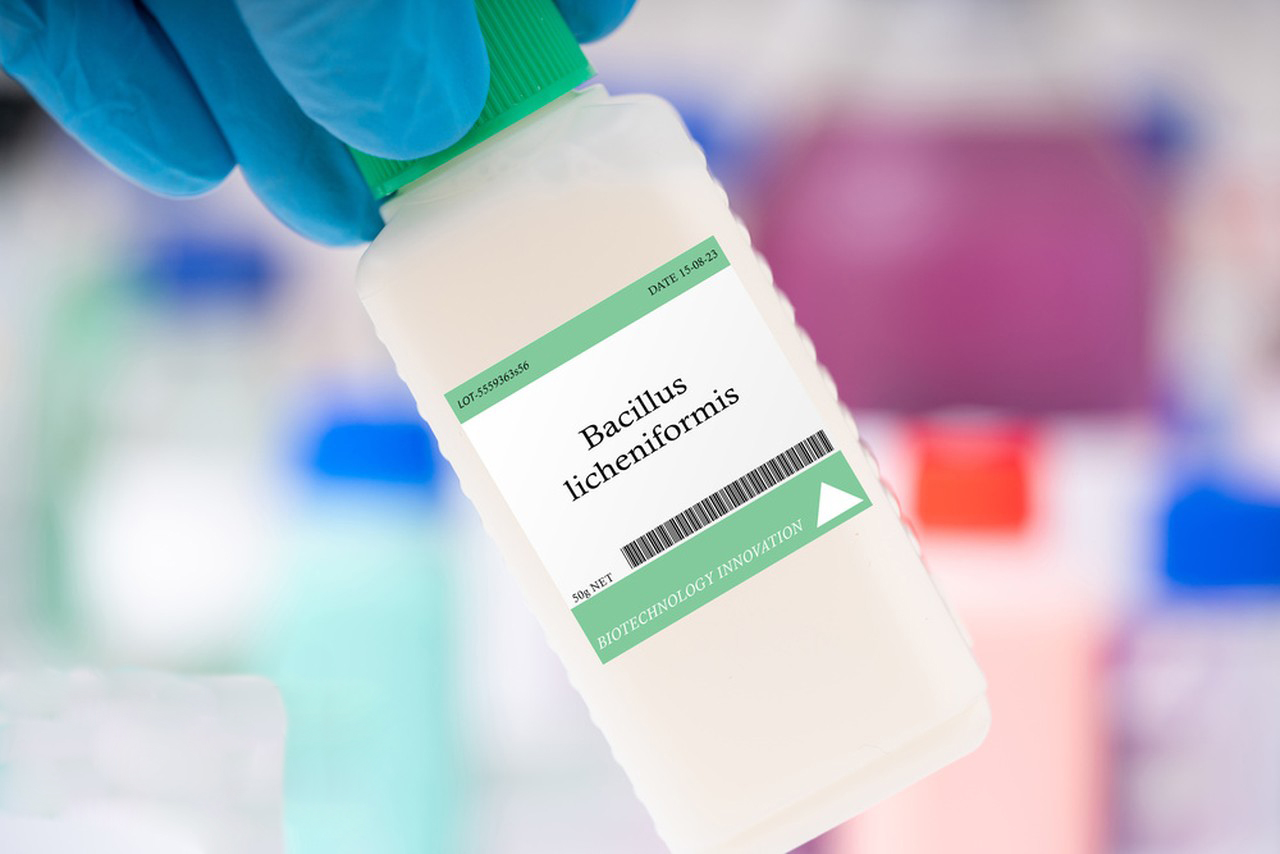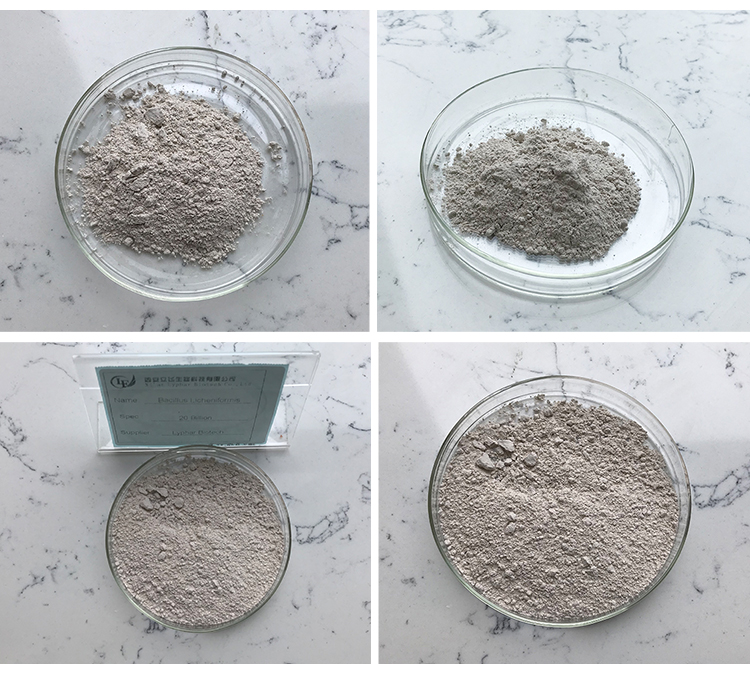Bacillus licheniformis is a species of bacteria that belongs to the genus Bacillus, which is known for its diverse and adaptable nature. Here’s some information about Bacillus licheniformis:
Origin of Bacillus licheniformis:
Bacillus licheniformis is commonly found in soil, where it plays a role in the decomposition of organic matter. It is also found in various natural environments, including water, air, and some plant surfaces. The bacteria form spores, which are highly resistant structures that allow them to survive in harsh conditions.
Properties of Bacillus licheniformis:
Spore Formation: Like many other Bacillus species, Bacillus licheniformis can form spores. Spores are a dormant form of the bacteria that are highly resistant to heat, desiccation, and chemicals.
Enzyme Production: Bacillus licheniformis is known for its ability to produce various enzymes, including proteases, amylases, and lipases. These enzymes have industrial applications in areas such as detergent production, food processing, and bioremediation.
Biocontrol Agent: Some strains of Bacillus licheniformis have been studied for their potential as biocontrol agents against plant pathogens. They can colonize plant roots and inhibit the growth of harmful organisms, thereby promoting plant health.
Industrial Applications: Due to its robust nature and enzyme-producing capabilities, Bacillus licheniformis is widely used in industrial processes. It is utilized in the production of enzymes, antibiotics, and other bioactive compounds.

Introduction of Bacillus licheniformis:
Bacillus licheniformis has found applications in various fields, including industry and agriculture. Some key aspects of its introduction include:
Industrial Applications: The bacterium is known for its industrial importance due to its production of enzymes. It is used in the manufacturing of industrial enzymes such as amylases and proteases, which find applications in detergent production, textile processing, and other industrial processes.
Agricultural Uses: Bacillus licheniformis has been explored for its potential as a biocontrol agent in agriculture. Some strains of this bacterium have demonstrated antagonistic activity against plant pathogens, contributing to plant health.
Bioremediation: Certain strains of Bacillus licheniformis have been studied for their ability to degrade pollutants and participate in bioremediation processes, helping to clean up contaminated environments.
Probiotics: In the field of animal nutrition, Bacillus licheniformis has been investigated for its probiotic potential. It has been studied for its positive effects on the gut health of animals, including poultry and livestock.
Research continues to explore the diverse properties of Bacillus licheniformis, and its applications may expand further as new discoveries are made regarding its capabilities and potential benefits.
Potential benefits of Bacillus licheniformis
Bacillus licheniformis is a Gram-positive, spore-forming bacterium that is commonly found in soil. It has been studied for various potential benefits in different fields, including agriculture, industry, and medicine. While research is ongoing, here are some potential benefits associated with Bacillus licheniformis:
1.Probiotic Properties:
Bacillus licheniformis has been investigated for its potential use as a probiotic, which refers to microorganisms that may confer health benefits when consumed. Probiotics can support gut health by promoting the balance of beneficial bacteria in the digestive system.
2.Agricultural Applications:
Bacillus licheniformis has shown promise in agriculture as a plant growth-promoting rhizobacterium (PGPR). It may enhance plant growth and development, improve nutrient uptake, and provide protection against certain plant pathogens. This makes it a potential biofertilizer and biopesticide.
3.Industrial Enzyme Production:
Some strains of Bacillus licheniformis are known to produce enzymes with industrial applications. These enzymes may have roles in the breakdown of organic matter, contributing to processes such as composting or waste treatment.
4.Bioremediation:
Bacillus licheniformis has been explored for its potential in bioremediation, the use of microorganisms to clean up pollutants in the environment. Some strains may have the ability to degrade various pollutants, contributing to environmental cleanup efforts.

5.Antimicrobial Properties:
Some studies suggest that Bacillus licheniformis produces antimicrobial compounds that could have applications in controlling the growth of harmful bacteria or fungi. This property may be useful in various industries, including food preservation and pharmaceuticals.
6.Enzymatic and Metabolic Activities:
Bacillus licheniformis is known for its ability to produce a variety of enzymes and metabolites. These compounds may have applications in industrial processes, such as the production of biofuels or the breakdown of organic materials in waste treatment.
7.Animal Feed Additives:
Bacillus licheniformis has been considered for use as a feed additive in animal nutrition. It may contribute to improved digestion, nutrient absorption, and overall animal health in livestock.
It’s important to note that while there is promising research on the potential benefits of Bacillus licheniformis, further studies are needed to fully understand its mechanisms and to validate its applications in different fields. Additionally, the specific properties and applications may vary among different strains of Bacillus licheniformis. Always consult with experts and follow safety guidelines when considering the use of microorganisms in various applications.
